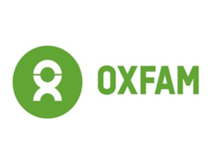Sorry, your search did not match any of our live jobs
We suggest that you:

JOB SUMMARY |
|
| Company | Oxfam |
| Industry | NGO/IGO/INGO |
| Category | Supply Chain ... |
| Location | Accra |
| Job Status | Contractor/Co... |
| Salary | GH¢ |
| Education | -:- |
| Experience | N/A |
| Job Expires | Oct 05, 2018 |
| Contact | ... |
| |
|
|
Company Profile Oxfam is a global movement of people working together to end the injustice of poverty. Oxfam is a rights-based global development organisation with more than 82 years of experience in more than 80 countries worldwide. Oxfam’s mission is to end the injustice of poverty and inequality through systemic change and the advancement of political, economic, and social rights. Oxfam has been working in Ghana since 1986, managing programmes in economic and social justice, women’s rights and gender justice, social inclusion, and accountable governance. Oxfam’s experience in Ghana and strong partnerships with Oxfam partner affiliates, government institutions, Ghanaian civil society organisations and communities support the delivery of active and innovative programmes and advocacy work seeking to improve the well-being of Ghanaians. The vision of the country strategy (2021-2026) is a just, equitable and sustainable society where those with power are accountable and citizens realise their rights. The long-term impact of the strategy will be achieved through structural and transformational change in three (3) thematic focus areas: Just Economy; Gender Justice and Social Inclusion; and Accountable Governance. The main vehicles for programme delivery are designated projects funded by different donors. Among such initiatives is the DANIDA-funded four-year Strategic Partnership Initiative for Ghana and West Africa project through Oxfam Denmark. Built into the delivery are monitoring, evaluation, accountability and learning frameworks for programmes and projects to help Oxfam in assessing progress toward the strategic ambitions and outcomes. Job Description PURPOSE
The purpose of this assignment is to identify barriers to transparency and sustainability risks in Ghana’s cocoa supply chain with a focus on gender and land issues. INTRODUCTION TO THE RESEARCH
This research is part of Oxfam’s Behind the Brands initiative. In February 2013, Oxfam launched the Behind the Brands1 campaign to challenge the ‘Big 10’ food and beverage companies on their social and environmental policies and practices, and to amplify the voices of key stakeholders such as farmers, communities, consumers and investors, calling on them to take action. By the end of the three-year campaign, the companies had made significant new commitments to improve social and environmental standards in their vast supply chains.
Oxfam is now focused on implementation of those company commitments: getting companies to ensure that their suppliers actually change their practices in line with the commitments made, and accelerating the transformation towards a more sustainable food system by adopting new business models in their supply chains. Implementation of these commitments will ensure that more of the power and value reaches the farmers and workers who produce the ingredients for the food we eat.
The Behind the Brands program (known as BtB 1.1) leverages Oxfam’s existing relationships with the Big 10 companies for the Oxfam confederation as a whole, and also targets a handful of countries (including Ghana) where we invest in in-country private sector engagement. In essence, Oxfam is approaching supply chain sustainability from both ends of the supply chain: from the Big 10 companies, given the commitments made and relationships developed during the campaign; and from the ground in-country, given the existing work of Oxfam country offices with smallholder farmers and workers.
As Ghana is the world’s second largest exporter of cocoa, Oxfam in Ghana is focusing Behind the Brands implementation efforts on sustainability in the country’s cocoa supply chain. However, in the first 18 months of implementation, we’ve faced a challenge at country level: there is almost always a “black box” in supply chain transparency, which makes demonstrating the link between companies and the communities they source from exceedingly difficult. Only a very small portion of cocoa sourced from Ghana is currently traceable to the farm level, and therefore more research is needed to fully understand how cocoa moves from community to consumer.
While supply chain transparency and traceability is important in its own right, without good data linking communities, cocoa, and final products, it is difficult to effectively advocate for the needs of cocoa-growing communities and address gender inequality in the value chain. Although women constitute about 40% of the workforce in the Cocoa value chain, they are confronted with several challenges.
Some of these are, women’s work not considered, women unpaid care work, lack and control over access to land, inadequate extension support and others. All these challenges and more limits women access to resources and impact negatively on the economic empowerment. Oxfam is however narrowing its work to address women empowerment and women’s land rights.
OBJECTIVE OF THE ASSIGNMENT
The main objective of the assignment is to explore what private sector actors are currently doing to address gender inequality and land issues in the Ghanaian cocoa supply chain, understand the implications of those efforts, and develop recommendations for improving outcomes for women cocoa farmers.
Key questions for this research include:
SCOPE OF ASSIGNMENT
Required Skills or Experience ELIGIBILITY
How To Apply Sorry, job has expired.
Note
Please note, employers receive numerous applications per posting and will only shortlist the most qualified candidates. Also Jobsinghana.com is not involved in any decision made by an employer/recruiter and therefore does not guarantee that applications sent will result in a candidate being shortlisted/selected for that position. |